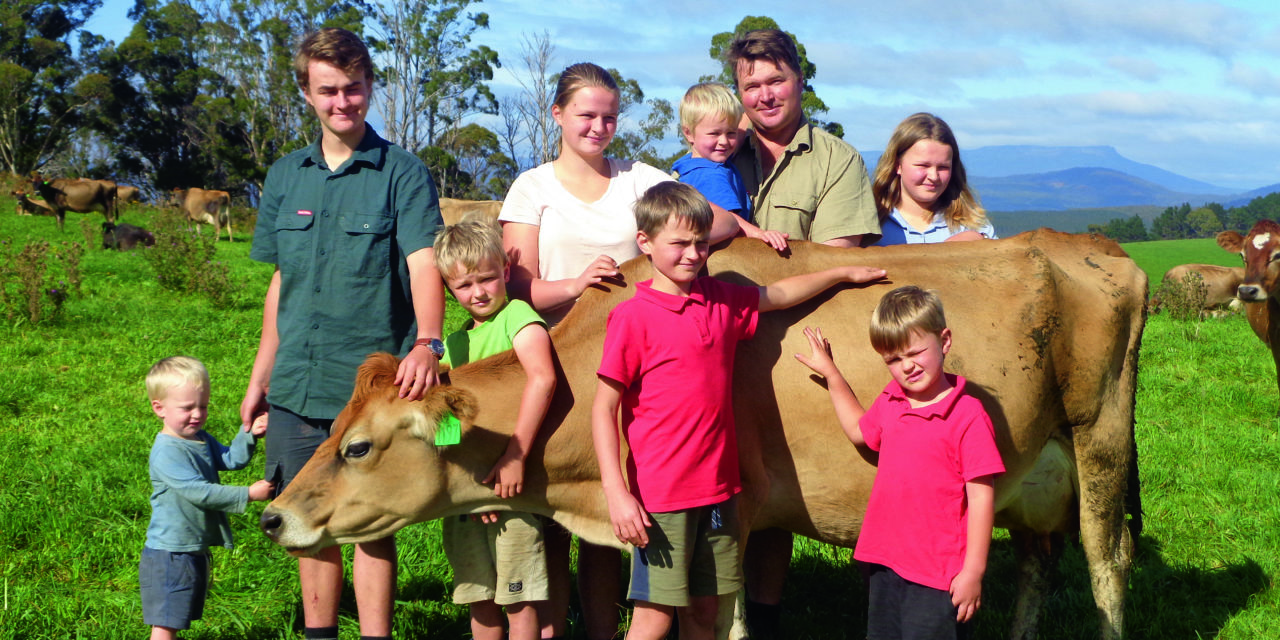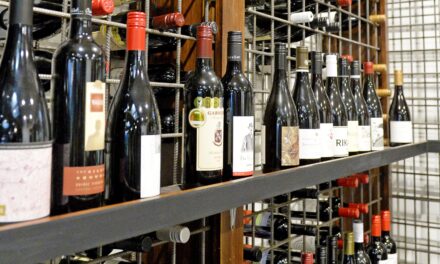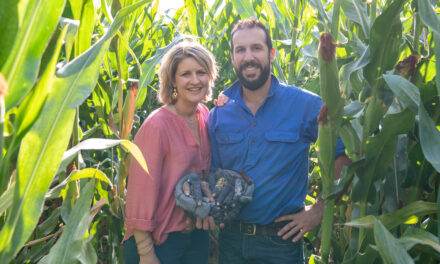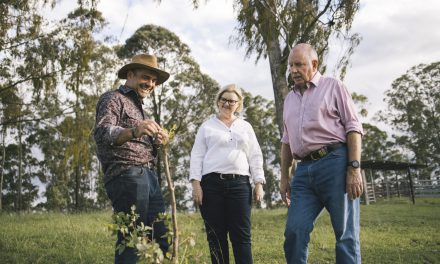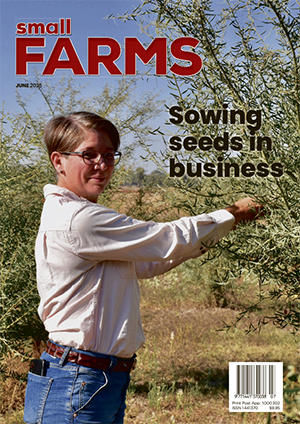Business and life lessons are mandatory on the Lambert farm. As soon as any of the family’s eight children turn 10 they start real lessons in responsibility and the value of work and are encouraged to set up an enterprise and have a go at something. And as SOPHIE BALDWIN discovered, two of them are proving to be very entrepreneurial
WHEN your parents run a large 520-cow organic dairy farm in the rolling hills of Railton in Tasmania, the opportunity to think outside the square and make a few dollars is easy if you have a little bit of drive and determination.
If you were a little bit like Alyssa and Abigail Lambert.
The sisters have established their own free-range egg business that serves two purposes — it fertilises the paddocks and helps with pest control while providing the girls with some much needed pocket money and valuable life skills.
The pair currently have four locations on the farm which are home to a total of around 75 chickens. Some are housed in homebuilt structures while others are in chicken caravans — either way all the structures are portable.
The girls are responsible for all the work involving the chickens, from collecting eggs to feeding and watering and the constant relocation of their coops.
“We both like working with animals and every morning we get up and make sure they have food and water and collect the eggs,” Abigail said.
“We get grain from the dairy and feed it to the chickens, and they roam around the pasture,” Alyssa said.
The girls share the load by managing two sites each — and have become expert bloodhounds, or should that be egghounds, when it comes down to finding all those hidden eggs — a life skill that comes in extra handy at Easter.
While most of the chooks do lay in the laying boxes provided, they have been known to find eggs hidden in trees and all over the place.
In fact, a clucky hen once hatched her chickens up a tree and the girls had to perform a successful aerial rescue and relocation mission.
“We wash the eggs if they are dirty and put them in cartons in the fridge at the dairy and a lot of our workers buy them,” Alyssa said.
And with a rather large family of eight children, dad Mark said they were also very handy at home.
“The girl’s business is getting to the point where we need to start thinking about whether to take it to the next level and start to buy in commercial layers, because currently everything is homebred,” he explained.
“We also need to start thinking about whether or not we start selling the eggs officially and go about some licensing as that would be the next step if the girls want to take it further.”
Mark said it was important his children learnt responsibility and the value of work and when they turn 10, they are encouraged to set up an enterprise and have a go at something.
“The girls are both very good savers and they love watching their bank balance grow,” he said.
As with all new businesses, there has been some trial and error and while there are no foxes in Tasmania to eat the chooks, there are quolls and they have been known to be a bit of a problem.
Eagles and hawks are also a concern.
“We discovered this in the worst possible way when we got our first lot of chickens and just put them out in an open paddock. We lost nine out of 12 birds in two days and we certainly learnt that lesson the hard way,” Mark said.
Now they are placed near sheltered areas so they can forage and hide amongst the trees, which appears to have helped the problem.
The girls said the cows don’t bother the chooks at all although they do have to remember to put the grain inside the sheds because they don’t mind eating all the chicken’s tucker if they get a chance.
“The cows have rubbed up against the door and shut it before so we have to make sure it stays open so the chooks can get back in at night,” Abigail said.
Fortunately these problems are only occasional and only when bovines and birds are sharing the same paddocks.
“The chooks do work really well with the dairy operation. They take up hardly any room in the paddock, help control grubs and pests and fertilise the ground as well,” Mark said.
The family also runs a small mob of sheep and some beef cattle on the side.
With Alyssa and Abigail just getting going with their production enterprise it probably won’t be long before they expand their portfolio to include branded meat packs or similar.

